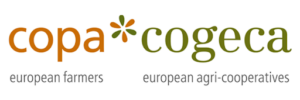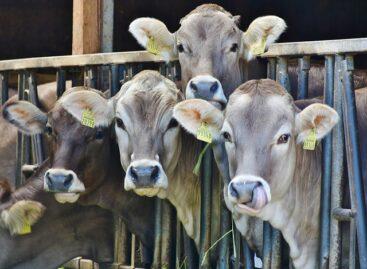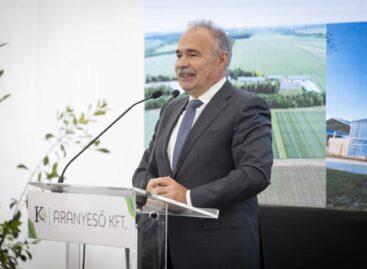Is the European meat tax coming? We summarize in four points why we should not fall for this simplistic narrative
The anti-meat narrative has gained strength again in Brussels. Recently, one of the chief scientific advisers of the European Commission spoke about his support for the introduction of a European meat tax.

The National Chamber of Agriculture – similarly to the “Voice of European Animal Husbandry” group of like-minded EU partners active in the livestock food chain, as well as Copa-Cogeca – condemns any initiative that, based on scientifically unfounded ideas, would have a negative impact without impact studies the European and thus the Hungarian livestock breeders.
The idea of introducing a European meat tax comes up from time to time
At the beginning of September, Eric Lambin, one of the chief scientific advisors of the European Commission, gave a statement to the European Science-Media Hub about his ideas regarding sustainable food consumption in the EU. In the interview, he mentioned, among other things, that he supports the taxation of countries that consume large amounts of red meat. This is not the first such claim: in 2020, the Dutch NGO Tapp Coalitie came up with the same idea, presumably inspired by the EU’s “Producer to Consumer” strategy, as this proposal is most likely related to future initiatives of the European Commission after 2024 .
The issue is also dealt with by the “Voice of European Animal Husbandry” group of like-minded EU partners active in the livestock food chain
Jacek Zarzecki, Vice-President of the Copa-Cogeca Beef Working Group, identified four specific reasons why he opposes the simplistic idea of a European tax on red meat – or indeed any other colored meat.
- Taxes on basic consumer goods are not very effective. Meat is a basic commodity, and for the consumer, the only real substitute for a given type of meat is another type of meat. Heavy taxation of meat would be an injustice and would prevent the classes struggling to make a living from this nutritious component of a balanced diet. In a constantly rising inflationary environment, such a measure would represent a double punishment for the most affected groups. According to the originators of the meat tax, part of the revenue collected would be used to support “sustainable food choices”, but what criteria could be used to do this without the measure becoming completely unfair? The replacement of meat products is also expected to be beneficial for plant-based imitation products, which products are in many cases highly processed and offer a much “fatter” margin for a handful of companies.
- A tax on meat products would make it impossible to keep animals in Europe. 29% of the EU’s agricultural land is marginal land, where crop cultivation is practically impossible from an environmental and climatic point of view. European livestock breeders play a leading role in the maintenance of pastures and bushland, preventing the spread of summer forest fires. In addition, farmers take steps every day to transform their farms. A tax on meat products would paralyze efforts and act as a market signal that would simply make any investment unprofitable. This would further exacerbate the already critical problem of rural migration and generational change.
- Supporters of the meat tax tend to forget the global economic context of animal husbandry. Such a tax would certainly lead to us moving our production to third countries. At the same time, if we lose our livestock farms, how can we ensure that our standards are met by other Member States and that our control systems are respected?
- Another fundamental fact that has been overlooked in the debate is that such a tax could not be applied at European level without being contrary to the spirit of the EU Treaties. Taxation powers are the responsibility of national authorities. In addition, the Treaty on the Functioning of the European Union39. article clearly states that the goal of the Common Agricultural Policy is to ensure food supply and to guarantee that food reaches consumers at reasonable prices. At a time when the average price of the contents of the shopping basket is regularly rising in the Member States, when we already know that the existing “Producer to Consumer” strategic proposals will lead to further price increases, how can we encourage further price increases with a tax of more than 10% on all meat products ?
There is no background study behind the idea of a European meat tax
According to Jarek Zerzecki, this debate is a continuation of what has been going on in Brussels over the past few years around the “Producer to Consumer” strategy. He finds it particularly disappointing that such a claim is made by one of the scientific leaders of the European Commission – who is known for supporting plant-based imitation products and laboratory-grown meat. The National Chamber of Agrarian Economy also agrees with the specialist’s explanation and condemns any initiative that negatively affects European, and therefore Hungarian, animal husbandry.
NAK
Related news
New subsidies help animal breeders
The Ministry of Agriculture is supporting the sustainability of domestic…
Read more >With rising grain prices, it is not worth sitting on stocks
Cereal prices are rising on the European futures markets, so…
Read more >The value-creating developments in agriculture are implemented one after the other
In addition to creating a favorable regulatory environment, it is…
Read more >Related news
BH AgrárTrend Index: the outlook for the Hungarian food industry has stabilized
The assessment of the situation of the actors of the…
Read more >Shrink inflation is getting worse
Dishwashing detergent, sweets, sour cream, cottage cheese, kefir and camembert…
Read more >NGM: innovation means the future of the food industry, State Secretary Gergely Fábián handed over new developments
In the framework of the Food Supplier Development Program (ÉLIP…
Read more >







